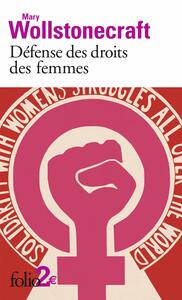You need to sign in or sign up before continuing.
Take a photo of a barcode or cover
hopeful
informative
inspiring
reflective
slow-paced
challenging
informative
reflective
slow-paced
slow-paced
In this 1792 essay, Wollstonecraft discusses that women have rights to rational education. We can see what life is like without this rational education in Tara Westover's memoir, Educated. The essay is very very dense. It's a shame Wollstonecraft could not complete her next work before her unexpected passing.
3.5 rated up to 4 for Goodreads, and because it's a classic of feminist literature.
Reading it was not the easiest, I'm not used to reading non-fiction written in 1792, there were many repeats in my opinion, however it was very interesting.
I'm not going to write a long review, because since 1792, there have been enough reviews written. I just have to add that I'm surprised that she not only claimed equality in rights for women but also for men. That's good.
And it's true that if you bring women up like they're simpletons, you can't expect them to be bright.
Reading it was not the easiest, I'm not used to reading non-fiction written in 1792, there were many repeats in my opinion, however it was very interesting.
I'm not going to write a long review, because since 1792, there have been enough reviews written. I just have to add that I'm surprised that she not only claimed equality in rights for women but also for men. That's good.
And it's true that if you bring women up like they're simpletons, you can't expect them to be bright.
challenging
inspiring
reflective
slow-paced
challenging
hopeful
informative
inspiring
reflective
fast-paced
challenging
hopeful
informative
reflective
slow-paced
informative
medium-paced
although at some points problematic and disagreeable, I find Wollstonecraft an incredibly progressive thinker and an important figurehead for feminist theory. It's interesting, having been primarily familiar with more contemporary theorists, to trace the evolution of feminism with respect to each thinker's position in history, and also in respect to the global, political on-goings within that given timeframe (in this case, the French Revolution, which plays a big role in the development of her philosophy). Definitely worth the read I think, she is one of the first to recognize that womanhood is not inherent, but learned, and subtly makes a distinction between sex and gender - to me, a pivotal transition in thought, which influences later thinkers who more thoroughly explore the concept.






